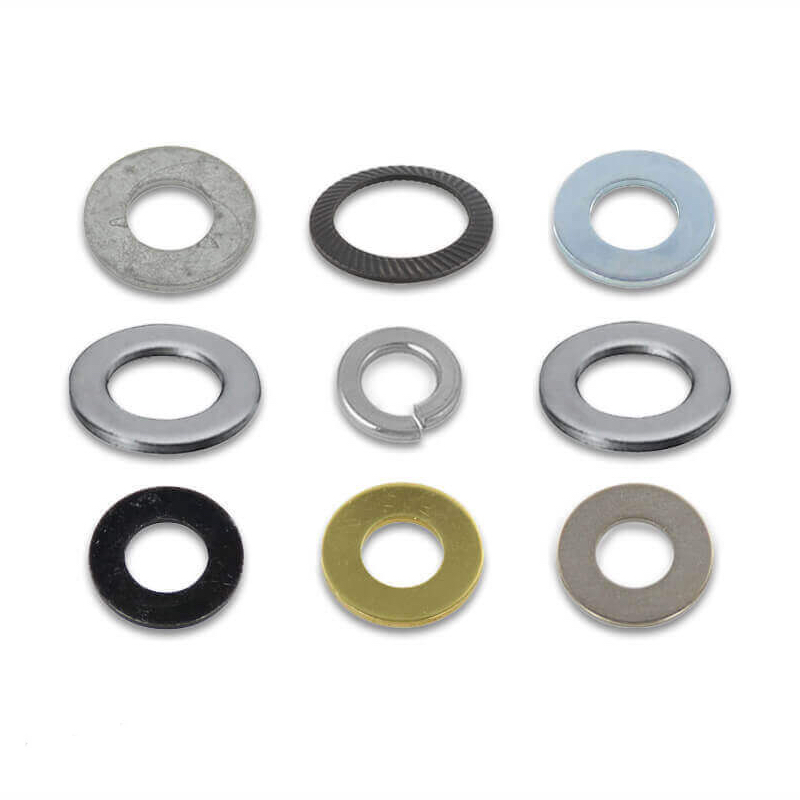Somewhere between the project deadline you missed and the text you shouldn’t have sent after two glasses of Pinot lies a quiet, unappreciated hero: the washer. Not the laundry one, though that’s holding your wardrobe together with equal emotional weight, but the small, flat disc that quietly keeps our built world from wobbling into oblivion. Tiny? Yes. Glamorous? Never. But essential? Absolutely. The washer is the backstage roadie of the construction world: distributing pressure, absorbing shock, and preventing everything from shaking itself loose when the real headliners, like beams and bolts, start getting cocky.
If you’ve ever tightened a screw and skipped the washer – only to find yourself reassembling a once-sturdy IKEA desk while metaphorically reassembling your life – you already understand the consequences. But what most people don’t realize is this: washers are not just mechanical components. They’re metaphors. They’re philosophies. They’re everything business management and relationships aspire to be, but rarely are.
In the world of construction, the washer’s job is deceptively simple. It spreads out pressure, protects surfaces, prevents corrosion, and keeps bolts from turning everything beneath them into sawdust or regret. In high-stakes environments like bridges, engines, or apartment buildings that really shouldn’t sway in the wind, the wrong washer – or worse, no washer – can spell disaster. It doesn’t fix the whole system, but it makes it a little more resilient. That’s Kaizen in action. Kaizen, a Japanese principle of continuous improvement, isn’t about dramatic reinvention. It’s about doing something slightly better today than you did yesterday. A washer doesn’t hold up the whole structure; it just quietly ensures it doesn’t collapse. In office terms, think of the colleague who updates the shared spreadsheet every morning without fail. No fanfare. No slogans. Just steady, unsung improvement that keeps things from falling apart.
In business, the washer becomes a stand-in for those invisible load-bearers: people or systems that absorb impact before it becomes a problem. They’re the ones who remember birthdays, clean up the slack threads in group emails, or ask, “Is everyone okay with this deadline?” before locking it into the calendar. This is Omoiyari, a kind of empathy that anticipates rather than reacts. It’s what makes someone send a message to check in when someone else goes quiet on Slack. It’s the act of refilling the communal coffee pot without announcing it. It’s the subtle cushioning that keeps a workplace from grinding itself into a burned-out husk. Bad management skips Omoiyari altogether. They tighten the bolt straight onto the wood, no buffer, and wonder why everything splinters. A little thoughtful pressure distribution could have gone a long way.
And yes, this metaphor stretches elegantly into personal life. The best relationships, like the best machines, are full of unseen washers. Someone quietly does the dishes when you’re overwhelmed. A friend calls not to give advice, but just to sit in your silence for a while. A roommate forgives the half-forgotten rent deadline because they know you’d do the same. These are emotional washers: small acts that cushion the strain and let imperfect parts work together anyway. That’s where Wabi-Sabi enters—the Japanese aesthetic of accepting imperfection and transience. A washer doesn’t make the bolt perfect or the surface pristine. It lets them coexist. Your life doesn’t have to be flawless. It just needs a little forgiveness in between the points of tension.
Of course, even the best-fitted washers wear down. Sometimes, no matter how thoughtful or well-designed, the bolt slips. Things come apart. That’s when we meet Shikata ga Nai—“it cannot be helped.” The Japanese aren’t telling us to give up, but to acknowledge that some wobbles are beyond fixing. Not every creak is your fault. Not every collapse needs an immediate post-mortem. Sometimes you just breathe, salvage what you can, and move on with less bitterness than you expected. There’s peace in letting go of perfect control. After all, control is a bolt. Letting go is the washer.
Still, even when everything around you rattles, there’s dignity in holding steady. That’s Gaman: enduring the tension with quiet strength. Not martyrdom. Not gritted teeth. Just grace under strain. It’s the person who supports the team while they themselves are barely hanging on. It’s the friend who doesn’t flinch when the conversation gets hard. These are not flashy acts. These are washer acts—holding things together while everything shakes.
Not all washers fit all bolts. Likewise, not all advice, coping mechanisms, or human interactions are universal. A spring washer flexes. A lock washer bites down. You don’t need the toughest one. You need the right one. Choosing the right washer for the situation isn’t just mechanical wisdom – it’s emotional intelligence. Sometimes you’re the bolt. Sometimes you’re the beam. And sometimes, surprisingly, you’re the washer for someone else. Knowing which role to play and when might be the most underrated life skill of all.
In the end, the washer is the great unsung philosopher of the structural world. Small but mighty. Humble yet essential. Forgettable until forgotten and then missed very loudly. In business, it is process. In relationships, it is patience. In life, it is the quiet, everyday act of keeping things from rattling themselves apart. So maybe today you don’t feel like the hero. Maybe you’re just a little flat disc stuck between a bolt and a hard place. But you’re holding it together. And that counts.
Be the washer. Appreciate the washers around you. And when in doubt, install two.
Author’s Note
This piece started as a joke about why washers matter more than we think. But the more I sat with it, the more it felt like a quiet truth I’ve seen play out in work, relationships, and those odd late-night conversations where everything feels like it’s coming loose. I’ve come to admire the washer – not for its design, but for what it represents: subtle strength, thoughtful presence, and the kind of support that doesn’t draw attention to itself.
The Japanese philosophies mentioned here have long shaped how I view creativity, collaboration, and the strange beauty of holding things together when life rattles a little. They’re not self-help slogans. They’re not productivity hacks. They’re reminders to pay attention, move with care, and embrace the idea that even small things – especially small things – carry weight.
If this piece made you think of someone who’s quietly held something (or someone) together, maybe send them a thank you. And if today you happen to be the washer, unnoticed but essential, I see you.


Leave a Reply